Much has changed since the ANC launched its election manifesto in 2019. And yet, much is being repeated — with it facing its toughest test in the upcoming elections. Back then, one of the defining dynamics in the party was the rift between the ANC leader, President Cyril Ramaphosa, and his predecessor Jacob Zuma. Now, that rift is much more obvious, with Zuma leading a different party, uMkhonto Wesizwe.
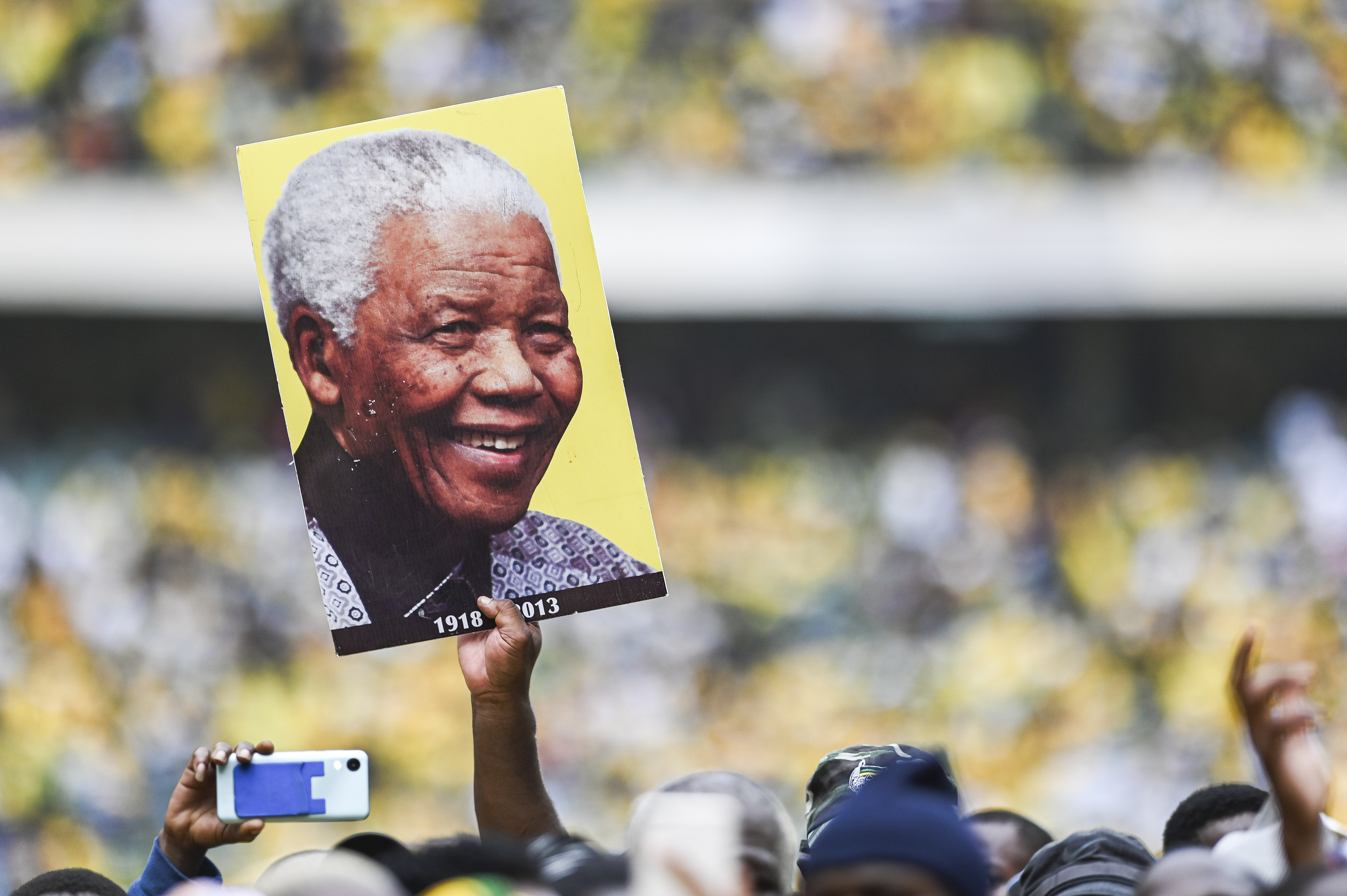 A poster of Nelson Mandela is held aloft at the ANC’s election manifesto launch at Moses Mabhida Stadium in Durban on 24 February 2024. (Photo: Gallo Images / Darren Stewart)
A poster of Nelson Mandela is held aloft at the ANC’s election manifesto launch at Moses Mabhida Stadium in Durban on 24 February 2024. (Photo: Gallo Images / Darren Stewart)
In 2019, the issue of land was a politically dominant dynamic, causing this writer to remark that it was significant that there was so little focus on the issue in the election manifesto that year.
It is the same time this time around. There is a promise to “more effectively use provisions in the Constitution and expropriation legislation to accelerate land [reform]”, but very little focus on the issue.
The 2024 manifesto does, however, demonstrate one of the ANC’s great strengths — that it can, when it needs to, show that it has heard the cries of voters. This is one of the reasons it conducted its manifesto review tour last year.
This time around, the manifesto contains a promise to create 3.5 million public sector job opportunities, to create a “national youth service” with the SANDF and to prioritise food security.
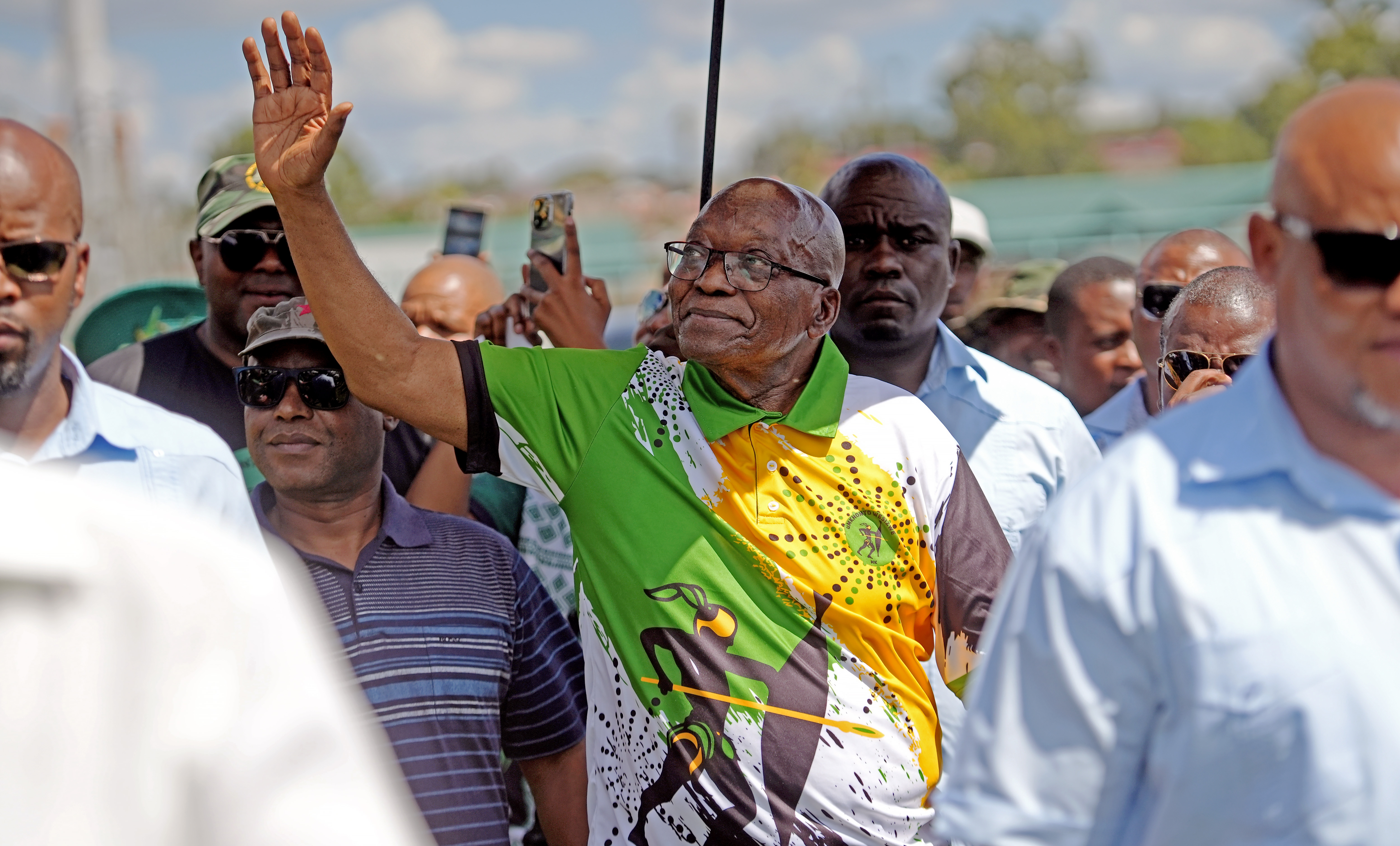 Former President Jacob Zuma arrives at Alexandra Stadium to address supporters of Mkhonto weSizwe (MK) on 7 February 2024. (Photo: Gallo Images / City Press / Tebogo Letsie)
Former President Jacob Zuma arrives at Alexandra Stadium to address supporters of Mkhonto weSizwe (MK) on 7 February 2024. (Photo: Gallo Images / City Press / Tebogo Letsie)
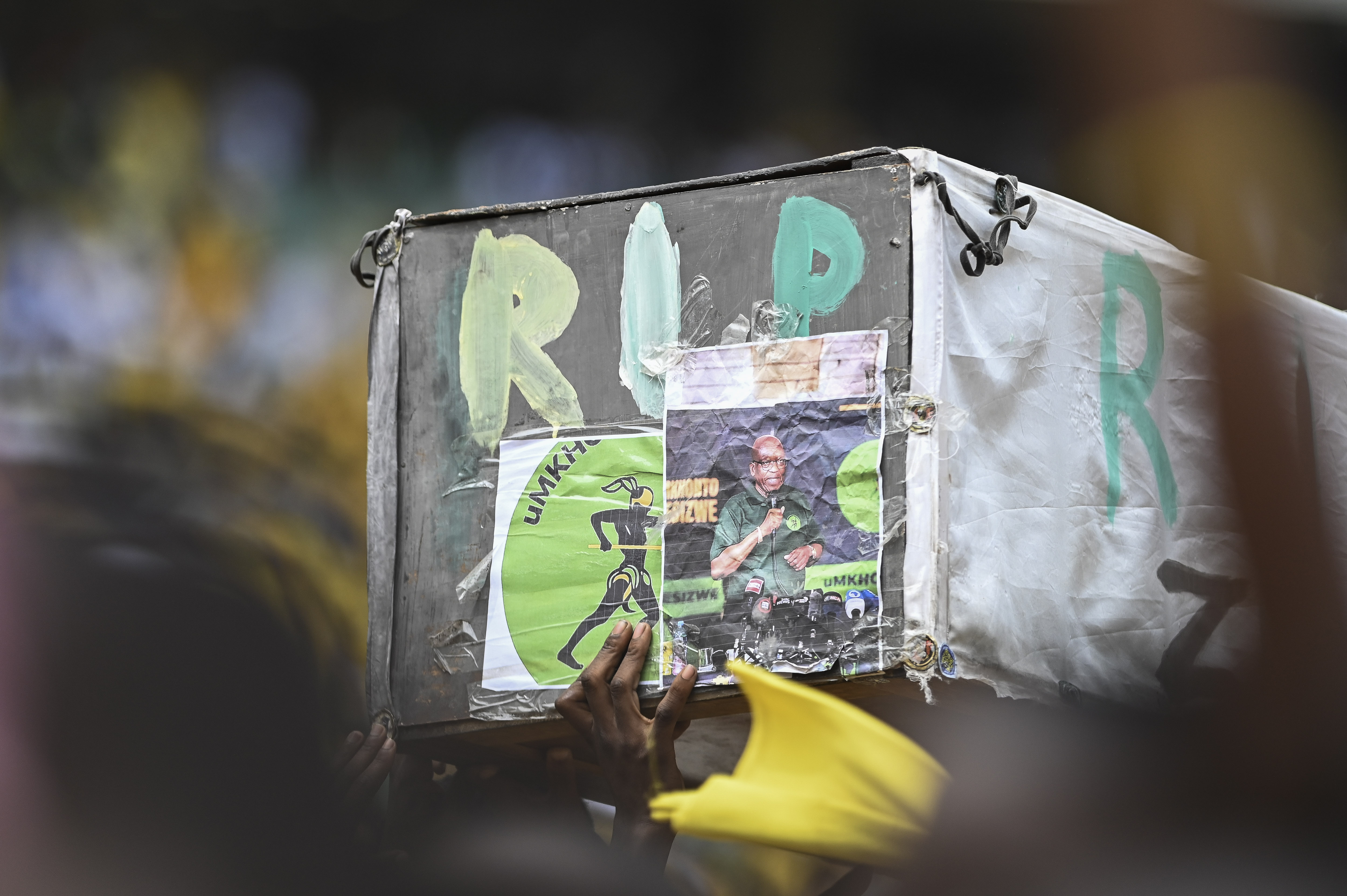 A symbolic RIP MK party coffin at the ANC’s election manifesto launch at Moses Mabhida Stadium in Durban on 24 February 2024. (Photo: Gallo Images / Darren Stewart)
A symbolic RIP MK party coffin at the ANC’s election manifesto launch at Moses Mabhida Stadium in Durban on 24 February 2024. (Photo: Gallo Images / Darren Stewart)
The ANC has promised for years that it would create jobs. This has been its consistent pledge since at least 2009. And yet youth unemployment is now higher than ever.
It is not clear how the SANDF could implement a national youth service when in real terms its budget will decline again this year, just as more demands are being made upon it in the DRC.
The ANC is correct that food security is a major problem and starvation in the Eastern Cape is a horrific reminder of the seriousness of this issue. However, the measures that are promised — to continue the “VAT exemption on essential items, support for community and home gardens” and to act against price fixing — are less than inspirational.
There is also a promise to “strengthen income support through existing social grants and use the Social Distress of Relief grants as a mechanism towards phasing in a basic income support grant”.
While this is a sort-of promise towards a basic income grant (BIG), it is significant that the ANC has not gone down the populist route of making a big explicit promise of a large grant for everyone, which suggests the party is aware of how this issue could backfire.
There are signals in the manifesto of how the party wants to deal with recurrent problems.
It promises to give “national and provincial governments greater responsibilities to support municipalities that struggle to provide services to the community”. This could well make it easier for the national government to intervene in eThekwini, for example, which has resisted such an intervention.
Clean water
The party is explicit in saying that national and provincial governments will have more powers to “intervene to provide clean water where municipalities are struggling to properly provide this service”.
This might well be evidence of the influence of Water Affairs and Sanitation Minister Senzo Mchunu, who has been vocal in his desire for more power to intervene in councils with a particularly dire situation on the ground.
The ANC is well aware that load shedding will have a major impact on its share of the vote. And, given the technicalities of South Africa’s transition from being dependent on coal and Eskom to renewable energy and independent producers, some may comb the ANC’s manifesto for clues as to what decisions its government will make in this regard.
The party appears to want to keep almost everyone happy, saying it will invest in the transmission grid so that more energy “including from renewable sources” can be supplied. It also promises to install more solar water heaters, and “develop gas, nuclear and hydropower projects”.
What is missing from this list of ingredients is any suggestion of investment in coal.
There is a long list of promises to improve people’s lives, including action against drugs, organised crime, extortion and gangsterism — a response to the consistent cries of communities who speak daily of their fear of rampant violent crime.
The manifesto provides some details, promising to modernise policing, increase the number of frontline offices, strengthen the justice system and the National Prosecuting Authority (NPA) and reduce case backlogs.
(Presumably, the NPA budget will grow faster than the VIP protection costs. — Ed)
However, it will be almost impossible to reduce crime without improving the way the police are led.
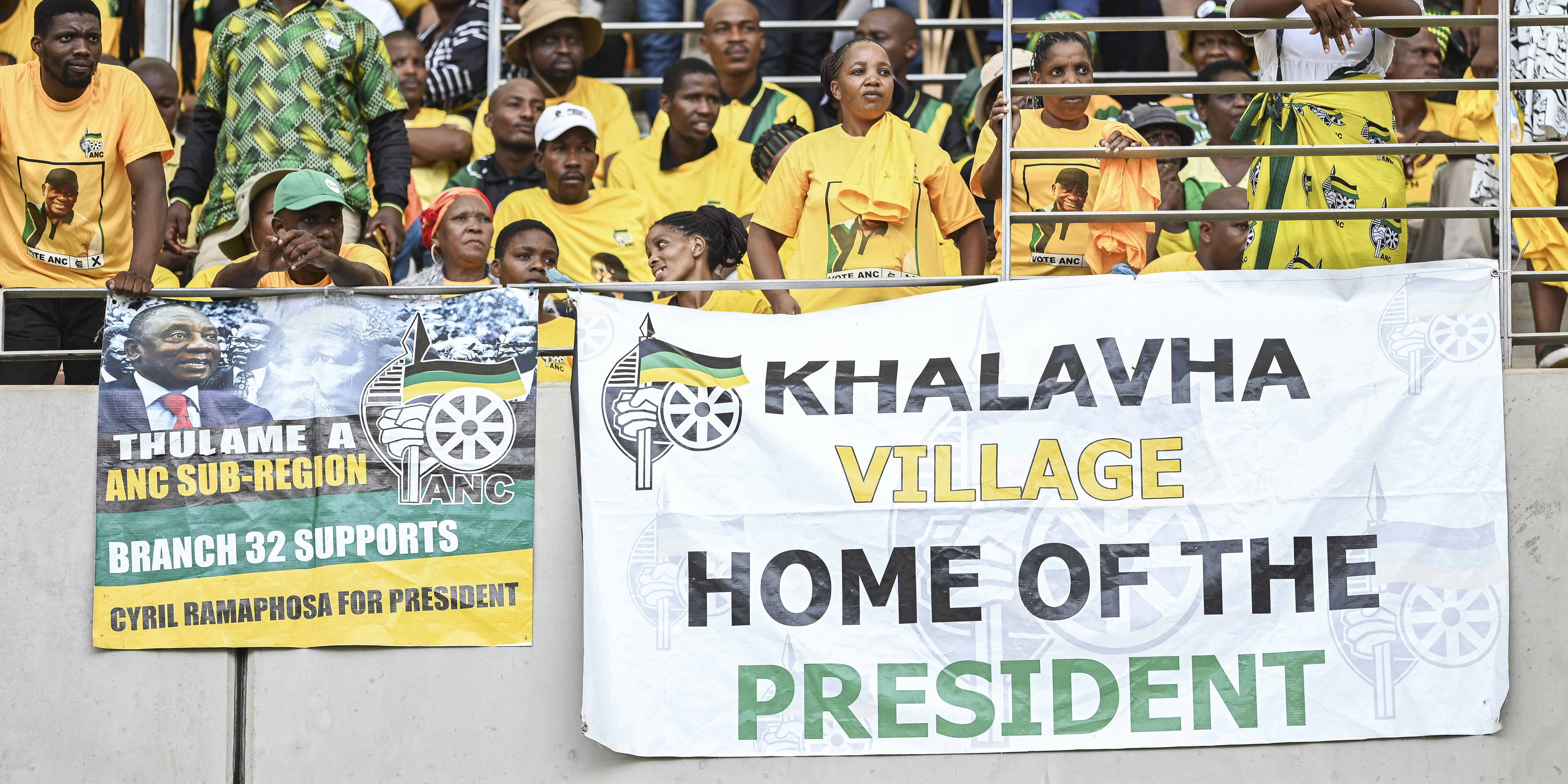 Supporters at the ANC’s election manifesto launch at Moses Mabhida Stadium in Durban on 24 February 2024. (Photo: Gallo Images / Darren Stewart)
Supporters at the ANC’s election manifesto launch at Moses Mabhida Stadium in Durban on 24 February 2024. (Photo: Gallo Images / Darren Stewart)
The manifesto refers to immigration issues, essentially pledging to continue with the changes to the migration laws and to “overhaul the immigration system”. It says the ANC will introduce a “unified citizen, refugee and migration law”.
All of this appears to be proposed by Home Affairs Minister Dr Aaron Motsoaledi.
The manifesto says the ANC wants to “simplify visa application procedures”. This has been a huge issue which has led to the Tourism Department and the Home Affairs Ministry having strong disagreements.
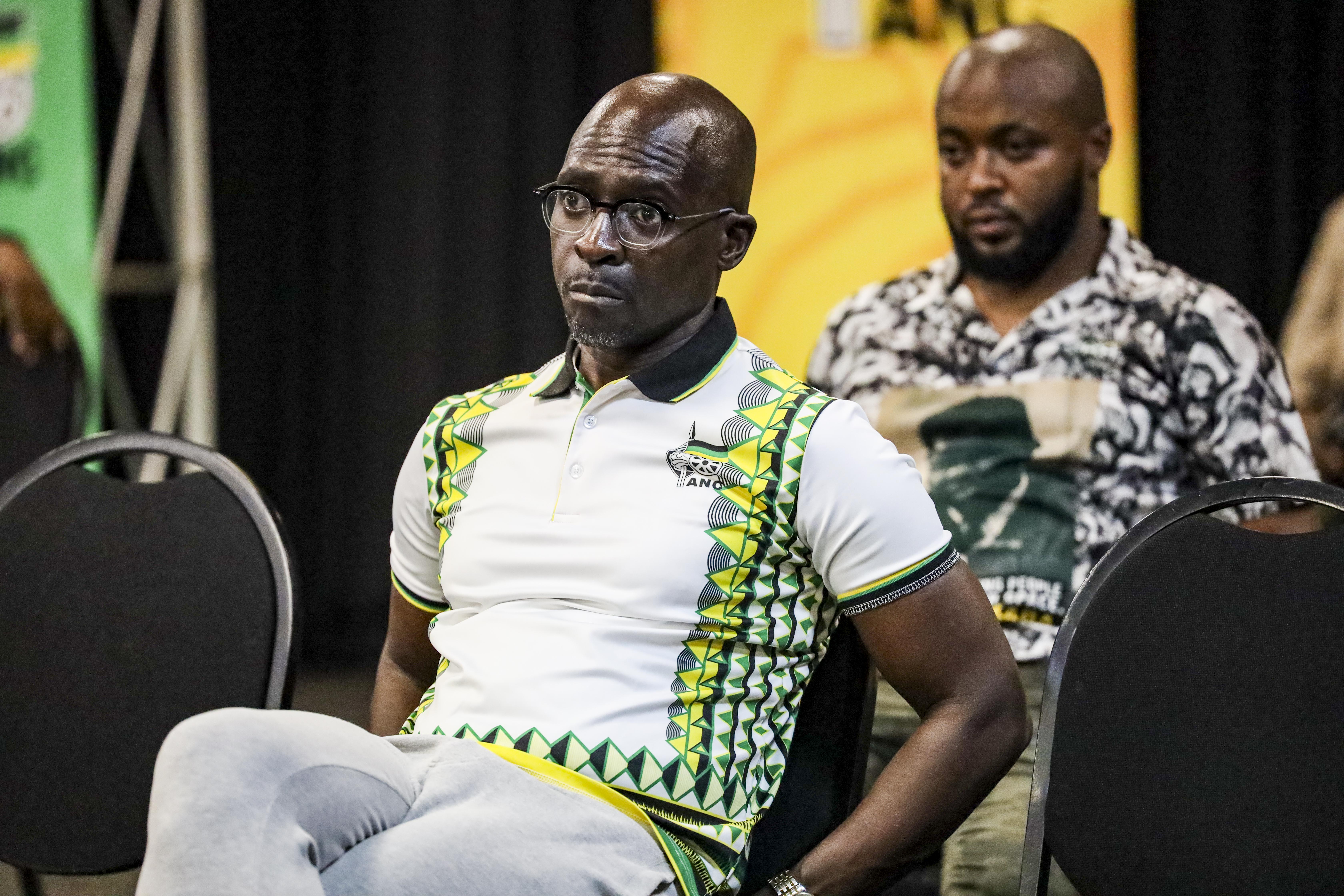 Former Home Affairs minister Malusi Gigaba. (Photo: Gallo Images/OJ Koloti)
Former Home Affairs minister Malusi Gigaba. (Photo: Gallo Images/OJ Koloti)
Considering that this tension goes back to Malusi Gigaba’s tenure at Home Affairs nearly 10 years ago, it may be overly optimistic to presume that this issue will now be resolved.
Xenophobia, potholes and integrity
There is also a nod to the heated politics of xenophobia, with a promise in the manifesto “to give preference to South African job-seekers and act against employment and exploitation of undocumented persons”. This is likely to be hugely contested, with legal arguments about the constitutionality of laws proposed by the Department of Home Affairs.
One of the most visible symptoms of our governance problems is potholes and the fact that in some places roads seem to have disappeared.
The ANC says it will use public employment programmes to fix potholes and pave roads and will create a bigger role for the SA National Roads Agency Limited.
This may be a viable solution to a major problem and will help to create employment. But voters will require evidence that these programmes will be implemented.
The manifesto says: “The hardship and suffering of many has led them to believe that ANC leaders care only about themselves, that we are soft on corruption, and that we do not care about the suffering of ordinary people. We admit we made mistakes as the ANC, with some members and leaders undermining institutions of the democratic state and advancing selfish personal interests.”
It goes on to say that the “living embodiment of a renewed ANC will be members who show exemplary conduct in society by upholding the core values and principles of selfless public service, discipline and integrity”.
The party appears to be creating a test for itself. It promises that its members will govern with “discipline and integrity”.
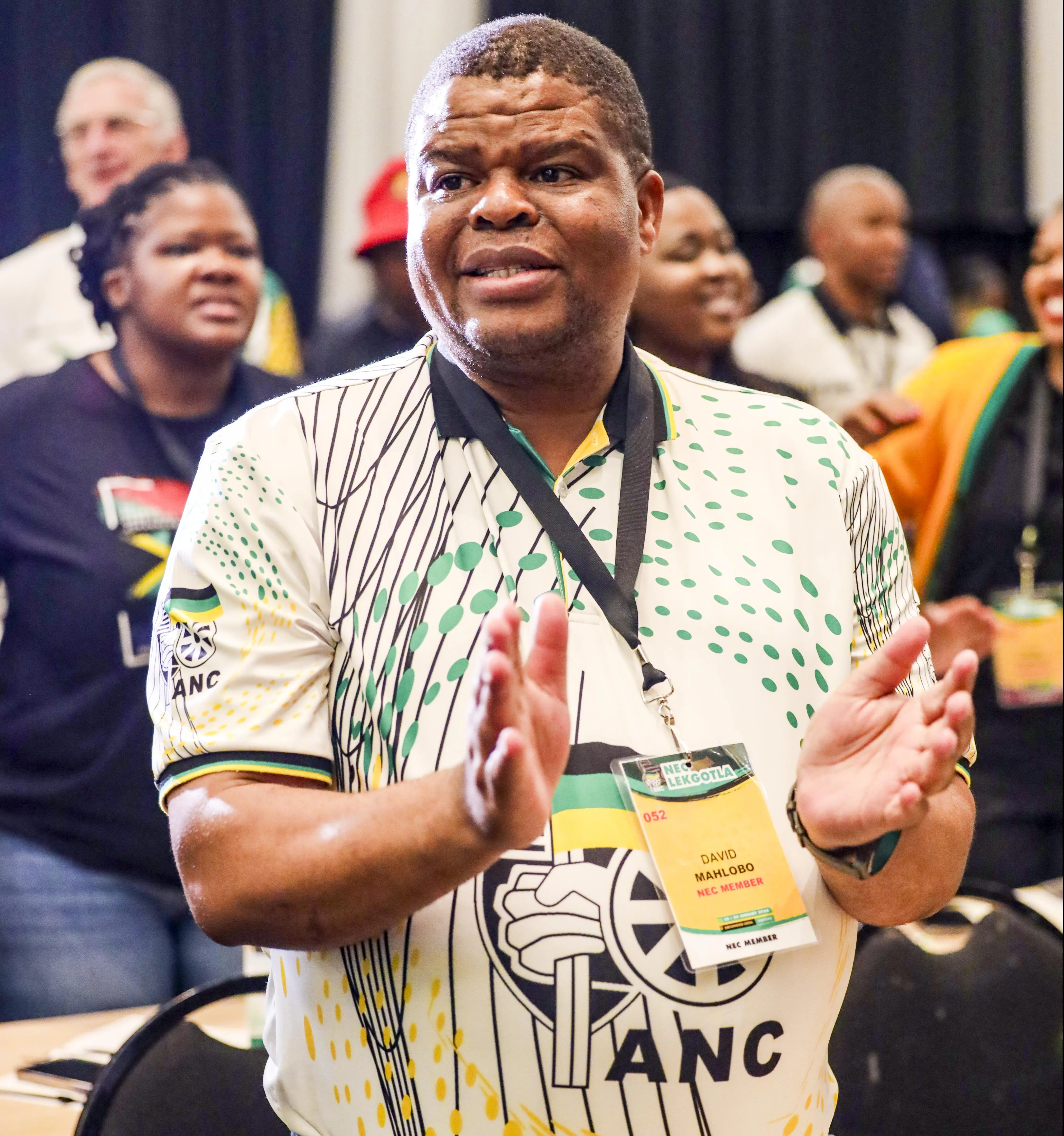 Former state security minister and now Deputy Minister of Human Settlements, Water and Sanitation David Mahlobo. (Photo: Gallo Images/OJ Koloti)
Former state security minister and now Deputy Minister of Human Settlements, Water and Sanitation David Mahlobo. (Photo: Gallo Images/OJ Koloti)
And yet, as has been noted many times, David Mahlobo and Dipuo Peters are still in the government. And others, such as Sfiso Buthelezi still play big roles in Parliament, despite findings against them by the Zondo Commission or Parliament itself.
Meanwhile, it appears that the at least 95 ANC leaders who faced questions over their integrity may still be included on the party’s candidate lists for positions in Parliament and provincial legislatures.
This would fly in the face of warnings from the ANC Veterans League that nominating these people for positions could count against the ANC at the polls.
This may lead to a situation where the ANC’s final list of candidates becomes one of the major issues of the elections.
There is one last point to make about how the ANC’s election manifesto is a demonstration of how some things in our society have changed so fundamentally.
On page 44 of the manifesto is a series of promises about social cohesion. The image selected by the party to accompany this issue is a picture of the Springboks, along with Ramaphosa, holding aloft the Rugby World Cup trophy. Considering the history of the Springboks, for this symbol to go from the very embodiment of apartheid pride to being included in a manifesto for the ANC is nothing short of breathtaking.
 President Cyril Ramaphosa lifts the Webb Ellis Cup after the Springboks won the Rugby World Cup final against New Zealand at Stade de France in Paris on 28 October 2023. (Photo: Mike Hewitt / Getty Images)
President Cyril Ramaphosa lifts the Webb Ellis Cup after the Springboks won the Rugby World Cup final against New Zealand at Stade de France in Paris on 28 October 2023. (Photo: Mike Hewitt / Getty Images)
It proves that institutions and symbols can change, and can be reformed (the ANC arguably played a big role in the start of this process, with Nelson Mandela’s support for the Springboks in 1995).
The ANC claims in this document to be reforming, that it has learnt from its mistakes and that it will be free from corruption. Seeing is believing and one can only hope. DM




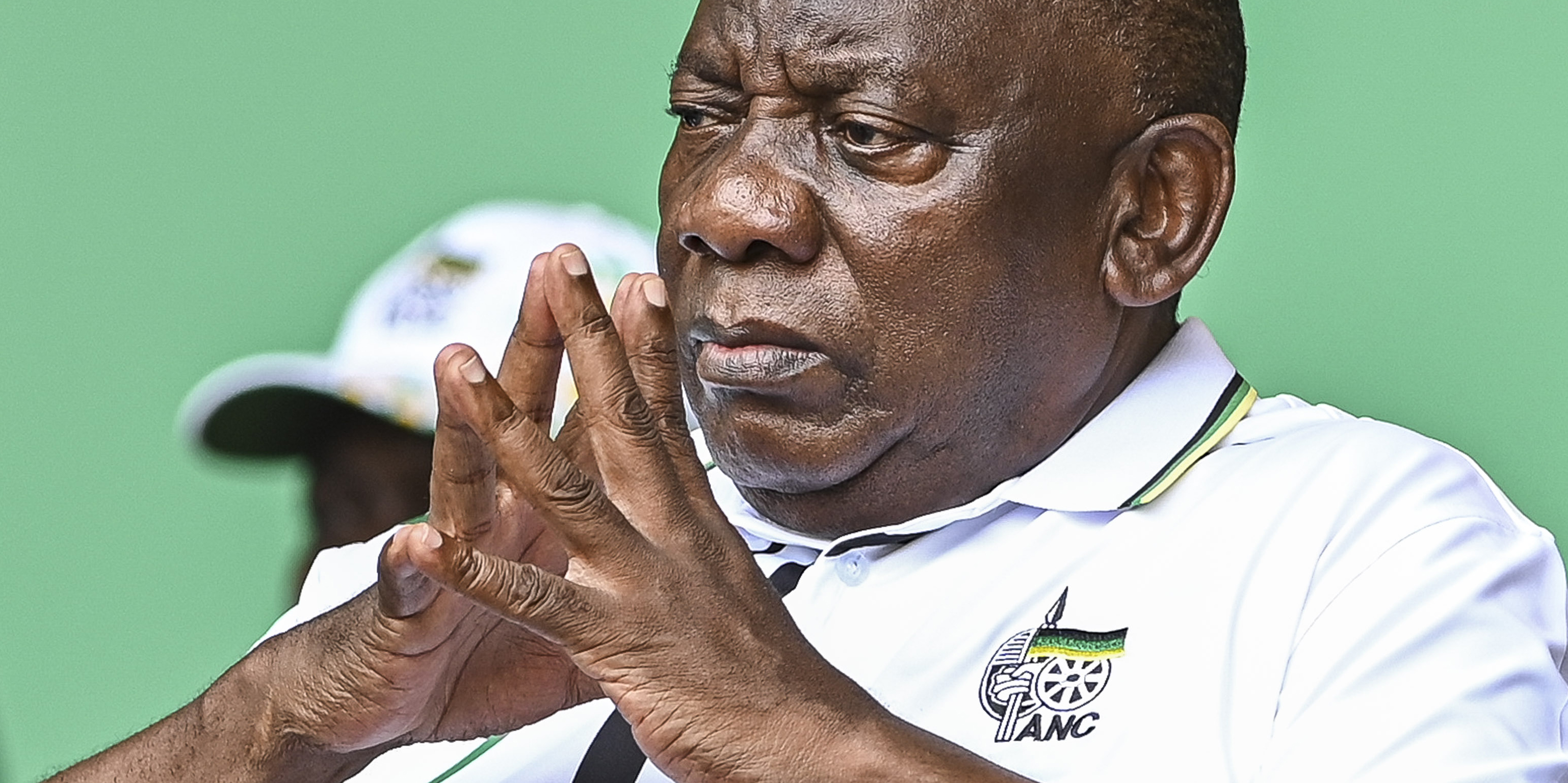 President Cyril Ramaphosa lifts the The Webb Ellis Cup after the Springboks won the final against New Zealand at Stade de France in Paris on 28 October 2023. (Photo: Mike Hewitt / Getty Images)
President Cyril Ramaphosa lifts the The Webb Ellis Cup after the Springboks won the final against New Zealand at Stade de France in Paris on 28 October 2023. (Photo: Mike Hewitt / Getty Images) 